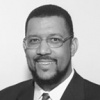Workforce Forum to Highlight Global Competition
This fall, the Central Illinois Workforce Development Board sponsors the 2005 Workforce Forum October 11 at the Par-A-Dice Hotel. The forum features two dynamic speakers: Pulitzer Prize-winning author Hedrick Smith and former Congressman Steve Gunderson.
As a former New York Times correspondent, author of several best-selling books, and a host of 20 award-winning PBS prime-time specials and miniseries, Hedrick Smith has been a frequent and valued speaker for more than 25 years. He recently completed two PBS prime-time miniseries reporting on the impact of the global economy and what drives the new American economy and the choices Americans can make to determine their economic destiny. PBS airs one of his specials, “Making Schools Work,” October 5. This two-hour special looks at American school systems across the country that are transforming the way students learn.
Steve Gunderson is a senior consultant and managing director in the Washington D.C. office of the Greystone Group Inc., a consulting group that provides strategic research, analysis, planning, and communications. He served as a U.S. Representative for 16 years and is widely recognized for his political analysis and ability to create bi-partisan outside-the-box strategies, especially in the areas of youth development, education, and workforce policy.
Steve recently co-authored the book, The Jobs Revolution: Changing How America Works, which serves as analysis of what the American workplace is like today and what will be needed to be competitive in tomorrow’s economy.
The 2005 Workforce Forum will be an interactive executive forum comprising extended, meaningful conversation and the sharing of ideas, theories, and effective strategies. The forum also will examine the workforce and education challenges of the emerging global economy. These include:
• The revolutionary changes taking place in the 21st century global economy.
• Changing demographics from low workforce growth projections and the retirement of the baby boomers that are leading to possible worker and skill shortages and a shift to the global talent pool.
• Growing skill and worker shortages approaching some 30 million workers over the next 25 years.
• A critical skill shortage in a growing number of occupations including health care, manufacturing, energy, and education.
• Occupational projections indicate the jobs of tomorrow will require higher skills and education and training in reading comprehension, math, science, speaking, complex problem solving, writing, service orientation, and “soft skills.”
• Lifelong learning and ongoing professional development will be workforce essentials.
• While increasing levels of education and training will be essential, U.S. students are falling behind students of other nations.
• The U.S. is facing increasing competition from emerging economies with substantial labor pools including India, China, Eastern Europe, and Russia.
• Global competitors with growing economies are directly related to the quantity and quality of their respective workforces. IBI
As a former New York Times correspondent, author of several best-selling books, and a host of 20 award-winning PBS prime-time specials and miniseries, Hedrick Smith has been a frequent and valued speaker for more than 25 years. He recently completed two PBS prime-time miniseries reporting on the impact of the global economy and what drives the new American economy and the choices Americans can make to determine their economic destiny. PBS airs one of his specials, “Making Schools Work,” October 5. This two-hour special looks at American school systems across the country that are transforming the way students learn.
Steve Gunderson is a senior consultant and managing director in the Washington D.C. office of the Greystone Group Inc., a consulting group that provides strategic research, analysis, planning, and communications. He served as a U.S. Representative for 16 years and is widely recognized for his political analysis and ability to create bi-partisan outside-the-box strategies, especially in the areas of youth development, education, and workforce policy.
Steve recently co-authored the book, The Jobs Revolution: Changing How America Works, which serves as analysis of what the American workplace is like today and what will be needed to be competitive in tomorrow’s economy.
The 2005 Workforce Forum will be an interactive executive forum comprising extended, meaningful conversation and the sharing of ideas, theories, and effective strategies. The forum also will examine the workforce and education challenges of the emerging global economy. These include:
• The revolutionary changes taking place in the 21st century global economy.
• Changing demographics from low workforce growth projections and the retirement of the baby boomers that are leading to possible worker and skill shortages and a shift to the global talent pool.
• Growing skill and worker shortages approaching some 30 million workers over the next 25 years.
• A critical skill shortage in a growing number of occupations including health care, manufacturing, energy, and education.
• Occupational projections indicate the jobs of tomorrow will require higher skills and education and training in reading comprehension, math, science, speaking, complex problem solving, writing, service orientation, and “soft skills.”
• Lifelong learning and ongoing professional development will be workforce essentials.
• While increasing levels of education and training will be essential, U.S. students are falling behind students of other nations.
• The U.S. is facing increasing competition from emerging economies with substantial labor pools including India, China, Eastern Europe, and Russia.
• Global competitors with growing economies are directly related to the quantity and quality of their respective workforces. IBI

